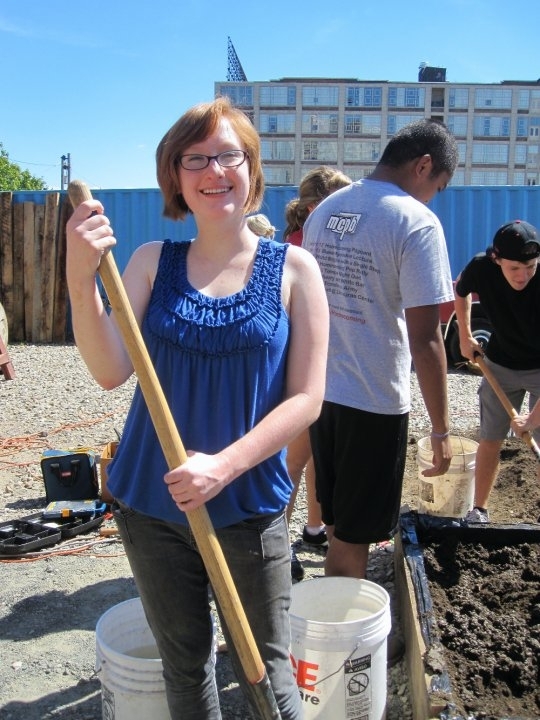Civic-minded undergrad examines the impact of community gardens
Amelia Garrett has been committed to issues of sustainability for as long as she can remember. After enrolling at Temple in the Honors Program, the double major in economics and environmental studies began volunteering at Temple Community Gardens and joined the student group, Students for Environmental Action. But that wasn’t enough.
As part of a research project during her freshman year, Garrett noticed that although community gardening was becoming an increasingly popular leisure activity and means of food production, the sites of urban gardens throughout Philadelphia were unevenly distributed. She realized that she could use the knowledge she gained in the classroom to understand why people build community gardens and, more importantly, why some communities have more gardens than others.
Last spring, as a sophomore, Garrett was accepted into Temple’s Diamond Scholars Program to complete her research project, “The Economics of Community Gardening.” Diamond Scholars offers Temple undergraduates the opportunity to receive a stipend and mentoring support while they engage in a focused research or creative arts project.
Over the summer, Garrett gathered and analyzed data on the location of community gardens and their relationship to the corresponding community’s median income, population density, employment, vacancy rates, crime and other variables.
One of her most significant findings was the correlation between the location of a community garden and the unemployment rate.
“We knew that areas with lower median incomes contained more community gardens,” said Garrett. “So we hypothesized that as unemployment increased, the number of community gardens would increase. Instead, the number of gardens increases as unemployment decreases. This signifies that many of the gardens are run by the working poor,” said Garrett.
Michael Leeds, a professor of economics and Garrett’s faculty mentor, says that Garrett is using her skills as an economics major to address some very pressing, real-life concerns.
“This project looks at how we might use urban spaces in environmentally friendly ways and how we could potentially secure healthy foosd options for low-income residents,” he said.
Garrett, from Worcester, Pa., decided to attend Temple while on a campus visit during her senior year in high school.
“While on the visit I got to meet a number of Honors Ambassadors, and I felt like Temple was the kind of place I could see myself attending and fitting in,” Garrett said.
With a research project to her credit, it’s plain to see she was right.
